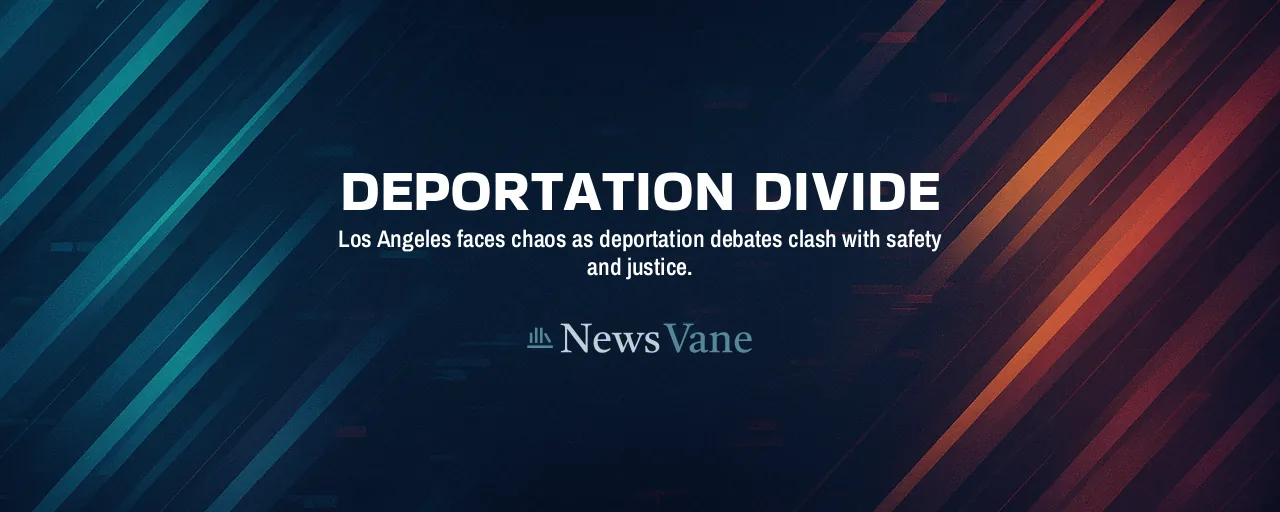A City in Turmoil
Los Angeles has seen its share of protests, but the recent unrest hit hard and fast. Thousands poured into the streets, blocking freeways and clashing with police, driven by anger over federal immigration raids targeting noncitizens with criminal records. Ordered by the Trump administration in its first 100 days, these actions have split the city, fueling a heated debate over safety, fairness, and the limits of enforcement.
The raids, which began in early June, zeroed in on individuals like Cuong Chanh Phan, convicted of murder, and Eswin Uriel Castro, a previously deported child molester. For some residents, these arrests signal a commitment to protecting communities from dangerous criminals. Yet, for others, the heavy federal presence and aggressive tactics feel like an overreach, tearing at the city's diverse fabric.
As protests grew, so did the chaos. Demonstrators threw objects at police, set vehicles ablaze, and faced tear gas and rubber bullets in response. The National Guard's deployment, without local consent, only heightened tensions. Now, Los Angeles confronts a critical question: how can it reconcile public safety with the rights of its residents?
The city's response reflects its complex identity. Home to millions of immigrants, Los Angeles thrives on diversity but also grapples with crime and economic strain. The raids and protests have laid bare these tensions, forcing residents to weigh the costs of enforcement against the values of inclusion and justice.
For many, the unrest feels personal. Families fear separation, businesses worry about labor shortages, and community leaders call for dialogue. The stakes are high, and the path forward remains uncertain as the city navigates this volatile moment.
Who's Being Targeted?
The administration's strategy centers on removing noncitizens with serious criminal convictions. In Los Angeles, recent detainees include individuals like Rolando Veneracion-Enriquez, convicted of rape, and Cielo Vivar-Ubaldo, tied to sex crimes and narcotics violations. Nationwide, federal officials report over 66,000 arrests since January, with most involving criminal charges, from murder to drug offenses.
Those supporting the policy view it as a vital step to restore safety. They highlight cases like Anastacio Enrique Solis-Salinas, convicted of domestic violence, arguing that removing such individuals protects vulnerable neighborhoods. The revival of programs like 287(g), which partners local police with federal agents, has expanded the reach of these efforts.
However, not all detainees have violent records. Some, like Felimon Alejo-Garcia, face deportation for driving under the influence, a charge immigrant advocates argue doesn't justify such severe consequences. Advocacy groups contend that broad enforcement fractures families and deters crime reporting, as residents avoid police out of fear. Studies reinforce this, showing immigrants commit crimes at lower rates than native-born citizens.
Rights Versus Security
At the heart of the debate lies a clash between rights and security. Legal experts and immigrant advocates stress that the Constitution guarantees due process for all, regardless of status. They criticize tactics like expedited removal, which limits judicial oversight, and courthouse arrests, which hinder access to lawyers. These practices, they argue, risk wrongful deportations and erode trust in the justice system.
Supporters of the raids, by contrast, frame them as essential for national security. They point to public support for tougher enforcement, with polls showing many voters favor increased arrests and border protections. For them, the protests reflect resistance to overdue accountability. They highlight that detainees include convicted felons, making the actions a matter of necessary enforcement.
The fallout affects entire communities. Children of deported parents face emotional trauma, schools see rising absenteeism, and industries reliant on immigrant labor brace for disruptions. Police leaders also warn that aggressive enforcement can make communities less safe by discouraging cooperation with law enforcement.
What Comes Next?
The protests in Los Angeles echo a long history of resistance to immigration enforcement, from the 2006 immigrant rights marches to the 2020 Black Lives Matter rallies. Social media and grassroots networks have amplified today's demonstrations, with millions joining nationwide calls for change, like the April 2025 "Hands Off" protests. Yet, history also shows that enforcement surges often deepen divisions.
The administration's plans, backed by executive orders and National Guard deployments, signal no retreat from mass deportations. Meanwhile, California officials and civil rights groups are fighting back with lawsuits, alleging excessive force and due process violations. Both sides face hard choices: ensuring public safety while maintaining community trust, and protecting individual rights while still addressing serious crimes.
For Los Angeles, the road ahead is fraught. Residents crave safety, justice, and stability, but bridging these divides demands tough conversations. As raids continue and protests persist, the city faces the challenge of healing and forging its future.
